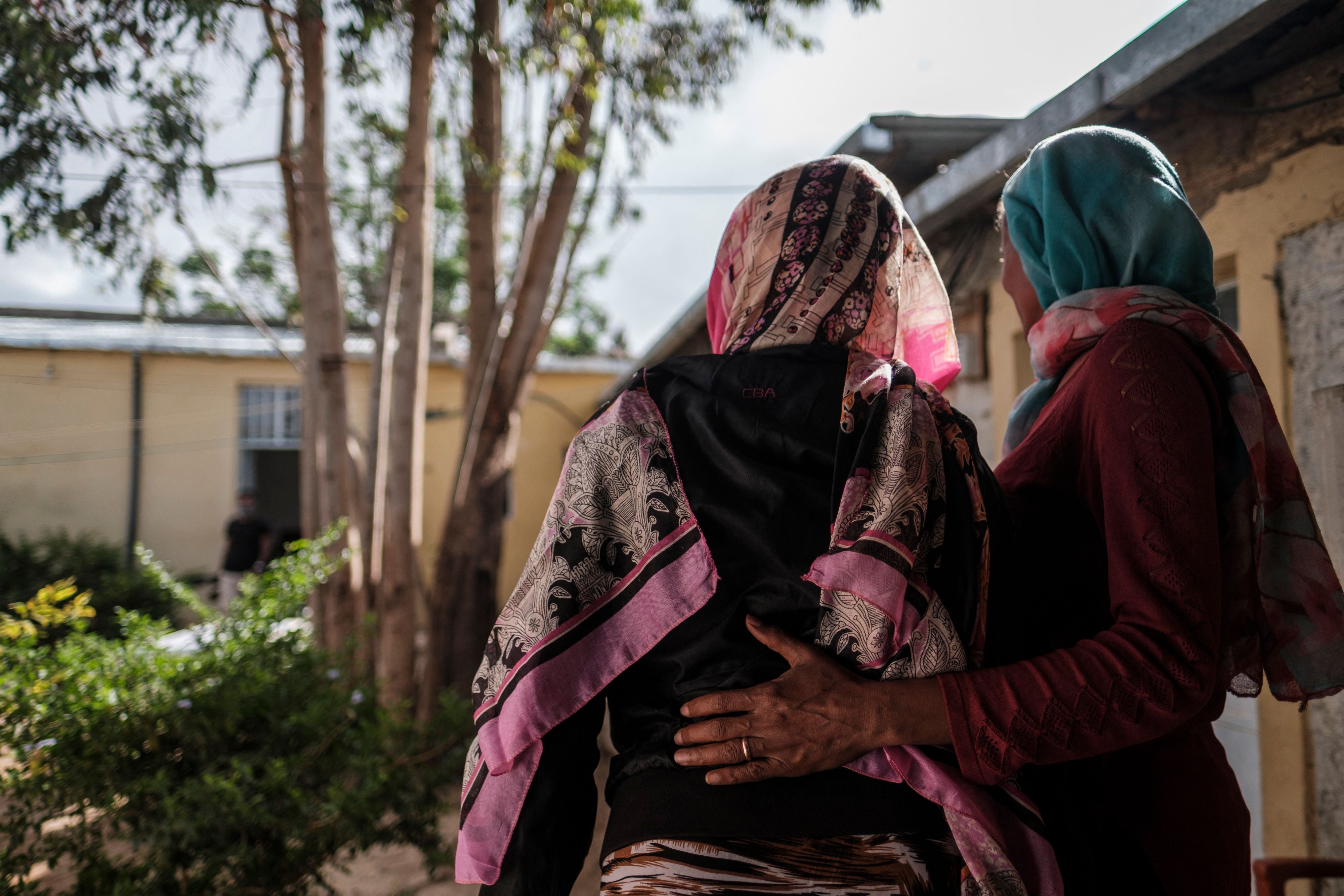Women face terrible suffering as the conflict in Tigray drags on
Six months after the conflict began, governments need to be doing more to help those affected by the fighting


Your support helps us to tell the story
From reproductive rights to climate change to Big Tech, The Independent is on the ground when the story is developing. Whether it's investigating the financials of Elon Musk's pro-Trump PAC or producing our latest documentary, 'The A Word', which shines a light on the American women fighting for reproductive rights, we know how important it is to parse out the facts from the messaging.
At such a critical moment in US history, we need reporters on the ground. Your donation allows us to keep sending journalists to speak to both sides of the story.
The Independent is trusted by Americans across the entire political spectrum. And unlike many other quality news outlets, we choose not to lock Americans out of our reporting and analysis with paywalls. We believe quality journalism should be available to everyone, paid for by those who can afford it.
Your support makes all the difference.In any given humanitarian crisis, anywhere in the world, it is always the most marginalised, the most vulnerable groups that suffer the most. It is no surprise then that women and children are so often the bearers of the brunt of war.
Despite increased attention given to the risks faced by women during crises, we are still seeing how little importance the international community, and the donor community in particular, attaches to gender-based violence (GBV).
A recent analysis by the International Rescue Committee (IRC) found that the average GBV funding request is shockingly only 3 per cent of the total needed, with less than $11 allocated per person in need of support. The conflict in Tigray, Ethiopia is no exception. Having visited the affected communities within Tigray itself, as well as the sites in eastern Sudan where almost 70,000 refugees have fled to, it is evident that women and girls are suffering and are at extreme risk of violence, exploitation and abuse against a backdrop of apparent impunity.
Six months on from the beginning of the conflict in the Tigray region of Ethiopia, there are widespread reports of sexual exploitation and abuse. While analysing the ways in which the conflict has affected women and girls, the IRC found that women are having to engage in sexually exploitative relationships in order to receive small amounts of money, food or shelter so that they are able to survive and feed their children. With nowhere to report abuse and no protection to seek, alongside growing economic uncertainty and instability, violence against women is on the rise.
But sexual exploitation and abuse are also being used as weapons of war. I spoke to many women who had been displaced in Tigray, and the trauma in their eyes and faces was evident. Both men and women recounted multiple stories of rape. One woman told me: “I witnessed a lot of women get raped in front of my eyes – five or more troops would rape each woman. Some of them were left for dead because of how many men had raped them. Those that managed to survive tried to go to medical centres. So much happened – I can’t even begin to tell you everything I’ve seen and experienced. I’ve never seen such things.”
What’s worse is that medical facilities are barely operational across the region. According to some reports, around 70 per cent of hospitals and health centres have either been partially or fully damaged during the conflict. Many pharmacies, hospitals and medical facilities have been looted and destroyed, rendering services for rape or assault survivors nonexistent. One pharmacist told me that survivors had come to him, asking for emergency contraceptive pills after they were attacked, but he wasn’t able to provide any.
In many of the countries affected by such crises and conflicts around the world, social norms dictate that women are caregivers for children and family members and have fewer opportunities to earn a living. Humanitarian organisations mounting a crisis response need to consider this, ensuring that women are consulted as part of the response. We need to be able to urgently fund life-saving services that support survivors of gender-based violence, and protection services in Tigray and elsewhere. These services are urgent and essential and therefore must be prioritised as such.
The G7 summit provides an ideal opportunity for renewed commitment to gender equality in humanitarian settings. Listening to bodies like the G7 Gender Equality Advisory Council is a tangible way to ensure that such perspectives are included.
But these are conversations that have been happening in the sector for many years, with little to no change. High-level meetings can only do so much.
Local women’s organisations have the unique ability to reach and empower women and girls within their own communities every day, and investments at a grassroots level have much greater impact. Without adequate funding to support these organisations, commitments made at the global level will make little difference to those on the ground.
To enact lasting and meaningful change, governments must dramatically increase their partnerships with local women’s organisations and ensure that at least 25 per cent of their aid budget reaches local groups.
Madiha Raza is senior global communications officer for Africa and Yemen at the International Rescue Committee
Join our commenting forum
Join thought-provoking conversations, follow other Independent readers and see their replies
Comments